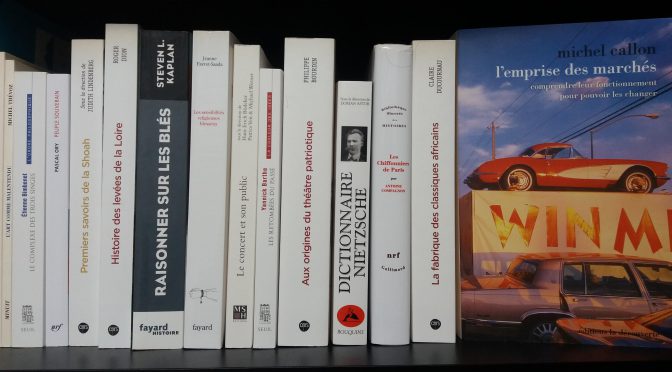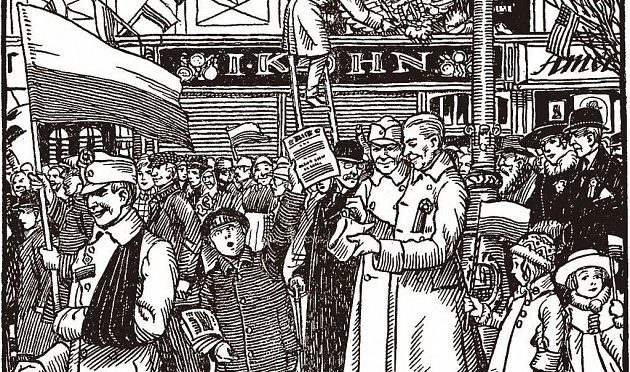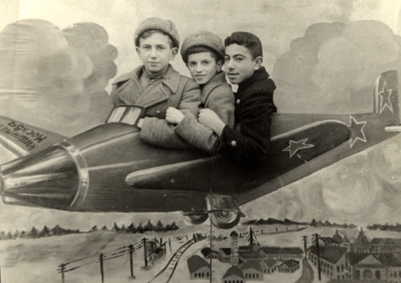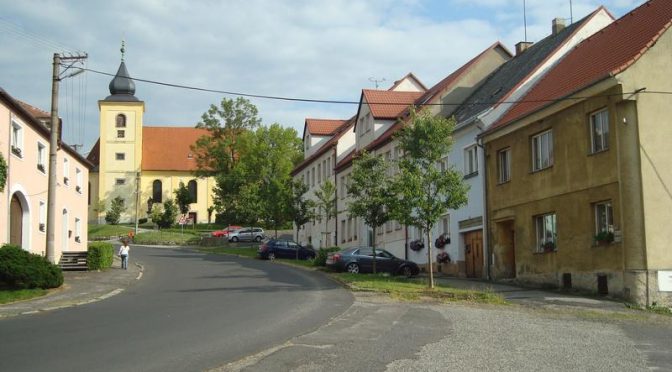
The new edition of CEFRES Review of Books will take place on Thursday 14 June at 5 pm at CEFRES library.
Join us for a discussion around the latest publications in humanities and social sciences from France.
This informal meeting gathers CEFRES team, the library readers, and professionals from libraries and publishing. The aim of our Review of Books is to make better known the publishing landscape in humanities and social sciences. Each book is presented in no more than 10 minutes, so to stress its originality and stakes.
So far, the following presentations are announced: Continue reading CEFRES Review of Books – June 2018 →

A lecture by Ségolène PLYER (University of Strasbourg)
Venue: CEFRES, Na Florenci 3, Prague 1 (Conference Room, Entrance C, 3rd Floor)
Horaires: 17:00-18:30
Organizer: CEFRES
Language: English
At the end of 1918, the change of political regime in Bohemia was rather pacific. Still, the archives show how much contemporaries feared the fall of the Habsburg monarchy. They also keep track of the expectations raised by the new Republic. Through the overlap of claims, wavering and conflicts, the foothills at the Silesian border, with its German and Czech settlement, exemplify the renegotiation on a local scale of the new social order.
llustration: Lithography reproduced by: https://nachodsky.denik.cz/kultura_region/pamatne-rijnove-dny-roku–v-hradci-kralove20081028.html

Seventh session of the 2018 common epistemological seminar of CEFRES and IMS FSV UK led by
Lucie Trlifajová (FSV UK / associate at CEFRES)
Regaining Control, Reconstituing Citizenship: Welfare Policies in Decaying Regions
Where: CEFRES – Na Florenci 3, Prague 1, 3rd floor, entrance C
When: Thursday 17 May 2018 from 3:30 pm to 5 pm
Language: English
Text:
- Yuval-Davis, Nira. Introduction. Framing the questions, in: (id.) The politics of belonging: Intersectional contestations. Sage 2011, pp. 1-25.

Fifth session of the 2018 common epistemological seminar of CEFRES and IMS FSV UK led by two PhD students:
Jan Koutník (FSV UK): Competitive Authoritarianism
and
Jamal Yazliyeva (FSV UK): Media Censorship
Where: CEFRES library – Na Florenci 3, 110 00 Prague 1, 3rd Floor, Entrance C
When: Thursday 19. 4. 2018 from 3:30 pm to 5 pm
Language: English
Texts:
- Levitsky and Way, Competitive Authoritarianism: Hybrid Regimes after the Cold War, Cambridge University Press, 2010, p. 1-36.
- Irum Saeed Abbasi and Laila Al-Sharqi, “Media censorship: Freedom versus responsibility. Review”, Journal of Law and Conflict 7(4), August 2015, p. 21-25.

A lecture by Diana Dumitru (Ion Creanga State Pedagogical Institute, Chisinau) in the frame of the seminar on Modern Jewish History of the Institute of Contemporary History (AV ČR) and CEFRES in partnership with the Masaryk Institute (AV ČR)..
Where: CEFRES library, Na Florenci 3, 110 00 Prague 1
When: from 5 pm to 6:30 pm
Language: English
The history of Soviet Jews in the postwar era is traditionally viewed as a dark period, filled with repression, expulsion of Jews from the state machinery, and the coexistence of mass-based and state-supported antisemitism. An analysis of the Jewish situation in Soviet Moldavia challenges this monolithic view of the Jewish experience under late Stalinism, and demonstrates that local postwar circumstances encouraged a vigorous promotion of Jews in key positions in this republic.
Simultaneously, the presentation will seek to illuminate the impact of this new public visibility of Jews on the triangular relation between Jews, the state/party institutions, and non-Jews in Soviet Moldavia.
Illustration: Moses Chubat and his Friends (Kishinev 1947)

Changes in Cultural Landscape of Czech-German Borderlands since 1918 until Nowadays: The Case of the Dolní Žandov Commune by Karolina Ćwiek-Rogalska
When & Where: 15 March 2018, 4:30 pm, CEFRES Library
Organizer: Ania Gnot (U. of Opole, ÚČL AV ČR, associate PhD fellow at CEFRES)
Discussant: Paul Bauer (FSV UK)
Language: English
In her book, Karolina Ćwiek-Rogalska deals with the changes of the cultural landscape of the Czech Borderlands, based on the example of the Dolní Žandov (formerly Unter Sandau) commune. In a significant way, the landscape was co-created by the German-speaking inhabitants who, after 1945, practically disappeared from there, since they were displaced. This absence triggered changes in such areas as culture, society and landscape. Karolina Ćwiek-Rogalska’s research is about the people who settled—or were settled—in the Dolní Žandov commune and the people who used to live there before 1945.
About the author
Karolina Ćwiek-Rogalska trained in cultural studies, slavist studies and ethnology. Her research interests include the anthropology of landscape, cultural borderlands and forced displacement in Poland and Czechoslovakia after 1945. She also uses “hauntology” as a tool of anthropological research. She currently works as an assistant professor at the Institute of Slavic Studies of the Polish Academy of Sciences in Warsaw. Her first book Zapamiętane w krajobrazie. Karjobraz czesko-niemieckiego pogranicza w czasach przemian was published in 2017. She now conducts a new project called „Recycling of memory. German War Memorials in Central Pomerania region”, financed by the National Science Centre of Poland.
Contact: karolina.rogalska@ispan.waw.pl
Karolina Ćwiek-Rogalska : Zapamiętane w krajobrazie. Krajobraz czesko-niemieckiego pogranicza w czasach przemian, Scholar, 2017.
Find more information about the book here





